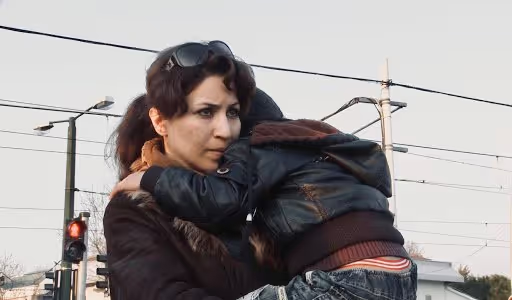Love Child Discussion Guide Background Information
Background Information

The Criminal and Penal Codes in Iran
In Love Child, we journey alongside Leila, Sahand and their child, Mani, fleeing Iran to seek asylum. Asylum is a form of protection for people suffering persecution in their home country. In this family’s case, we learn that what is at stake is life or death because in Iran adultery is considered a crime that is subject to the penal code and public death sentencing (Shiran, 2010). A penal code defines laws, crimes, and corresponding punishments for when certain laws are broken. Often, criminal codes are influenced by moral codes, and Iran is a Muslim country in which Islamic law is enforced and impacts the moral code of the people. This means that what might be traditionally understood as a moral or ethical question - like extramarital affairs - are punishable by law in Iran. One of the alarming issues with the use of the penal code in Iran is that in 2011 Iran executed 600 people who violated their penal codes, 143 of these cases were children. The loss of lives due to the moral rules held up by religion and its intersections with criminal law, set the parameters of everyday life. Often these executions are public as a means of using lethal punishment as a scare tactic to keep others abiding by laws. Sahand shares the ways his experiences of witnessing public executions as a child, as one of the reasons he has reason to believe he and his family are under threat. Oftentimes, the punishments of violating penal codes permit torturous and cruel behavior such as stoning, flogging and amputation - these punishments retain discriminatory consequences against women and religious minorities. These executions and codes of conduct of governing the people in Iran have been argued as a human rights issue as people continue to fight against them, or flee from threat, in order to experience the fullness of life that is not governed by moral codes and fear.
The Rights of Women of in Iran
In Iran, criminal offenses that can (and have historically) led to death by public execution include, but are not limited to: consensual sex outside of marriage; drinking alcohol; not following the Muslim faith practices; and - as we see in the film - adultery. All people are impacted by the conditions, laws and penal codes in Iran, but women experience extremely limited rights. Iran’s supreme leader, Ayatollah Ali Khamenei, has described gender equity/equality for women as “unacceptable” and against the Islamic Republic (Human Rights Watch, 2015). As of 2015 women could not leave the country without their husband’s permission, watch a men’s sports game, or make reproductive justice choices for themselves. While there have been some advances for women and girls in Iran, in the forms of education and healthcare, women’s lives are often defined by exclusion, inequality and restriction - which we also learn through Leila’s experience trying to escape unlivable conditions.
Seeking Asylum
In the film, Leila says, “I risked everything. Not for a good life or for money but for a life where his [Mani] mother and father can be together.” In Love Child, Leila found herself in a dangerous environment - her husband was suffering from addiction and throughout the years of their marriage was also abusing her and creating volatile conditions for her and Mani. When Leila found connection, safety, and love with Sahand, and after Mani was born from their relationship, she made a choice for the safety of her family. However, due to moral regulations enforced by harsh criminal codes, her experiences of survival and becoming a mother would have been determined as punishable by death.
Due to the multiple offenses against Iran’s moral codes, this family was forced to flee for their own safety and their families’ safety and escape to Turkey. While in Turkey, the family begins the arduous, painstaking asylum granting process through the United Nations’ formal application, and we also see the pain of leaving family behind which allows for a more complex understanding of the impossible choices Leila was forced to make.
From this film viewers understand that asylum is a form and right of international protection. This right to protection is granted by immigration authorities, and if asylum is not granted, the asylum seeker then becomes an illegal immigrant who may be asked to leave the country and/or face deportation. In the case of Leila, Sahand and Mani, they were eventually granted asylum. They chose to live in the United States, but the United States was then closed for asylum seekers from Muslim countries, making their long journey towards safety, once again precarious. The travel ban that restricted travelers from Muslim countries was put into place by Donald Trump. Immigration was a central focus of his campaign and shortly after winning his election he began to introduce exclusions and limitations on who could enter the United States, many of these limitations have been described as unconstitutional and discriminatory. Muslim countries such as Iran, Syria, Somalia, Yemen, and Libya were targets of this travel ban into the United States because President Donald Trump believes these countries have “significant terrorists presence.”
Due to religious intolerance and ideas of xenophobia being spread widely on political platforms, which we see present with the exclusions of who could enter the United States, the family became victims of anti-Muslim bigotry. It becomes clear that, for some, the journey towards safety from intolerance and persecution is long and full of struggle; and that penal codes are not the only way that people experience threat of violence. Every year around one million people all around the world seek out asylum. At the end of 2019, there were approximately 4.2 million people around the world waiting for a decision on their asylum case.

